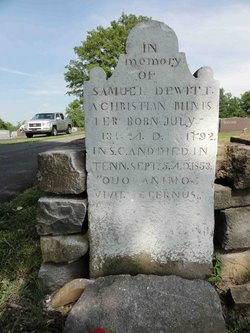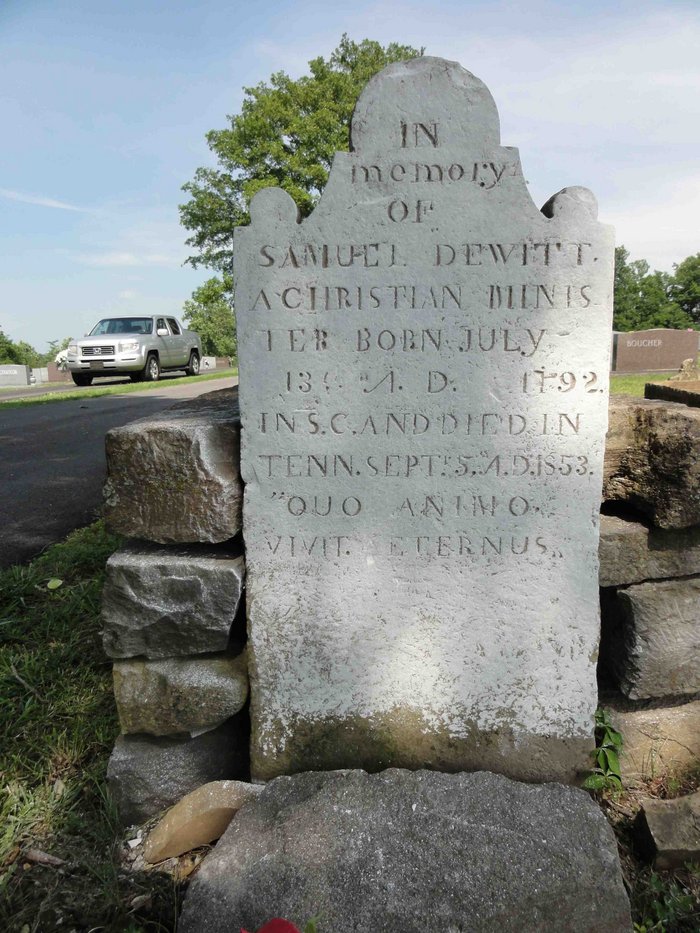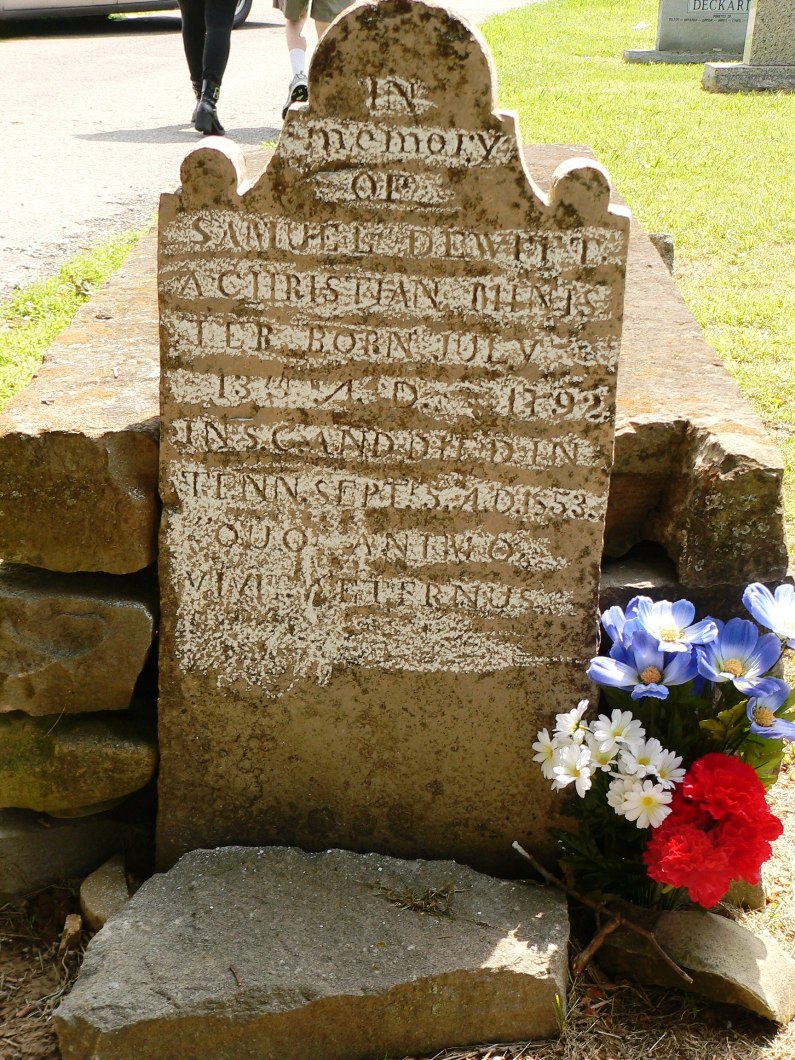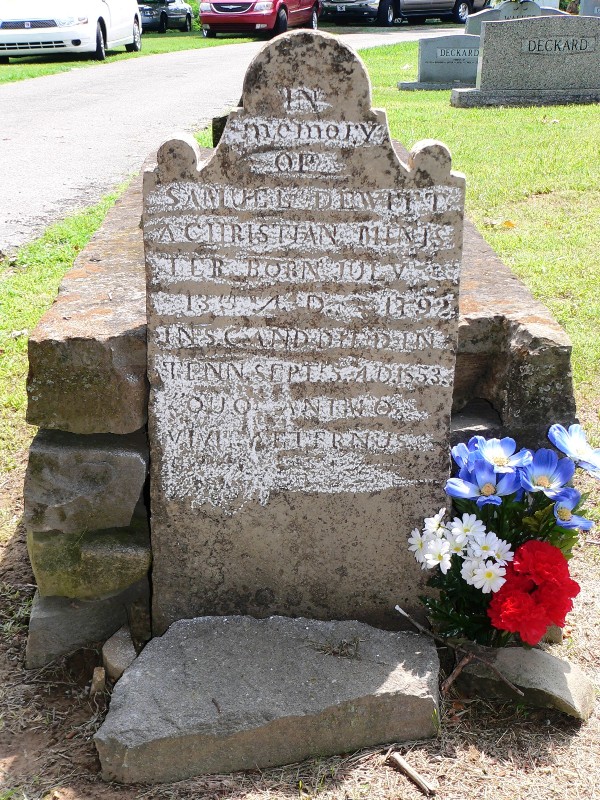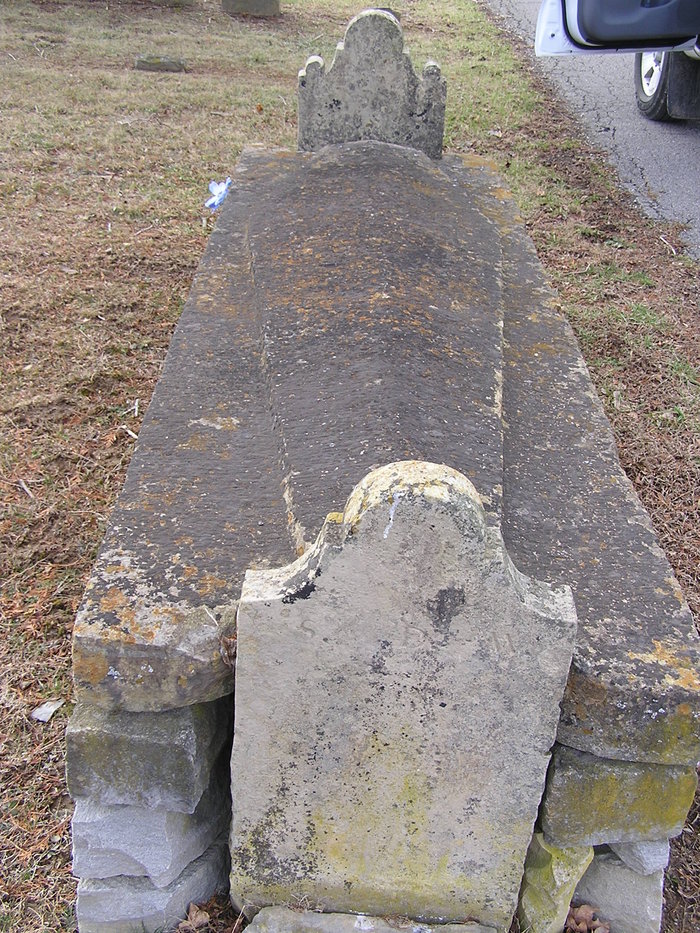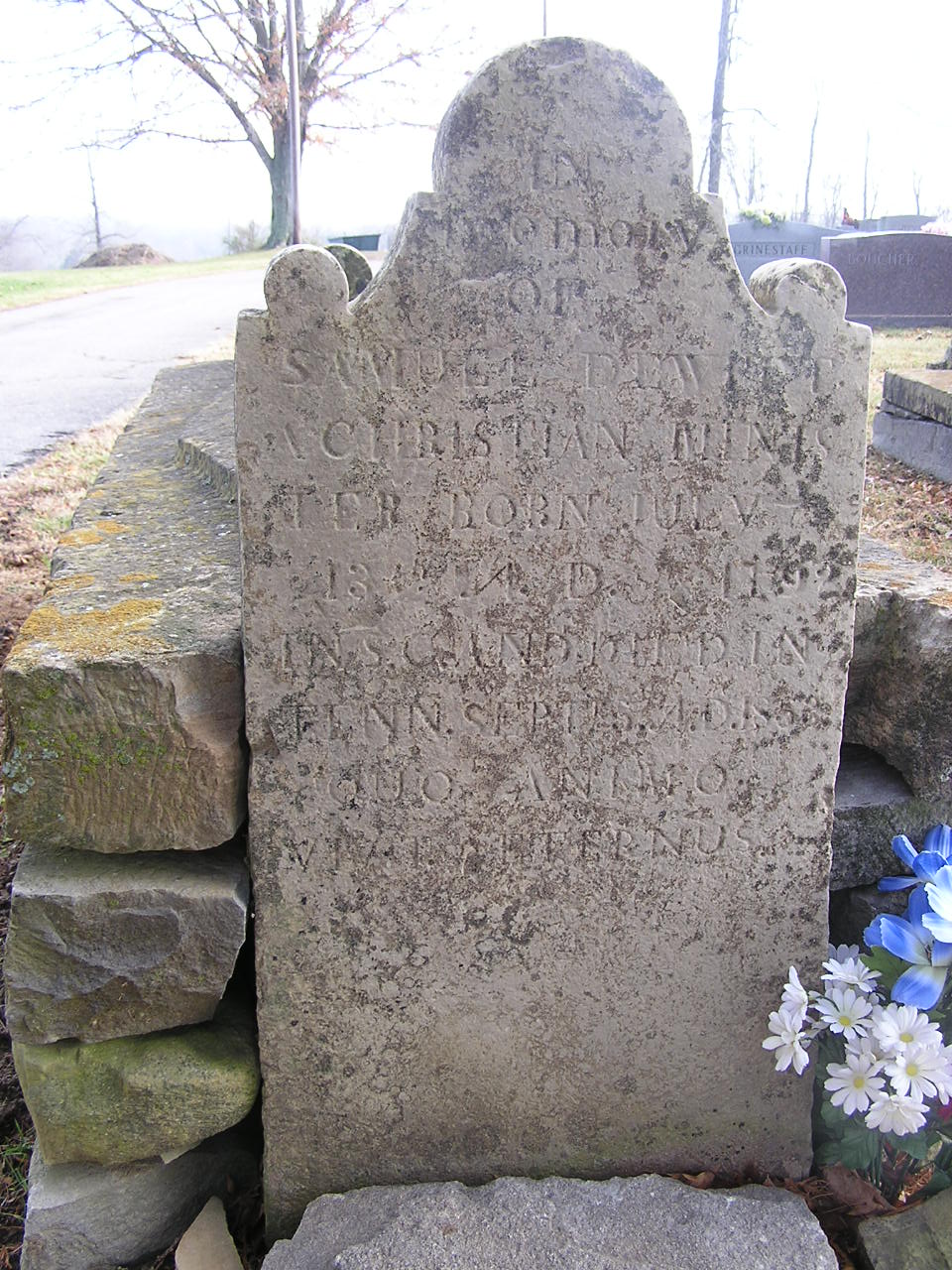The Life and Work Of Samuel Dewitt
The southern Kentucky border county of Monroe enjoyed a great amount of success in the early years of the 19th century's religious revival. Preachers like John Mulkey, Rice Haggard, Barton W. Stone, Isaac Tipton Reneau, and Samuel Dewitt, were common to the people of that region for the first half of the century. Samuel Dewitt was born in South Carolina July 13, 1792. His wife, Mary Allen McWorter, was also born in South Carolina the same year. The two were married June 18, 1812. By 1820, the couple was living in the vicinity of what is now referred to as Old Union Christian Church, on Howard Hatcher farm in Monroe County, Kentucky. It was here that Barton W. Stone came in 1805, for a camp meeting, and established a Christian church with eleven members. By 1810 there were 125 members with three preachers, Louis Byram, David Steward, and Benjamin Lynn. Samuel Dewitt was converted in that church in 1820. Not long thereafter, he began preaching the old-time gospel and continued to do so until his death. His preaching took him to Tompkinsville, Old Mulkey, Red Boiling Springs, Baghdad, Gainsboro, and Layfayette. He baptized many throughout Southern Kentucky and Northern Tennessee, including another great preacher of that region, John Newton Mulkey, in 1824. In 1835, a new town sprang up a couple of miles to the east of Old Union Christian Church. Samuel Dewitt moved there, where he stayed the remainder of his life. According to local history, Dewitt named the town Gamaliel, saying it was a good Bible name; taken from Acts 5:24. One of the earliest churches of Christ in the state was planted there that continues to this day. A cemetery was located there beginning in 1844. Samuel Dewitt and some of his children are buried in the cemetery. He died September 5, 1853. His epitaph is inscribed, "Quo animo vivit a eternus," in which the literal translation is, "He lived with a mind for eternity." -Scott Harp and gleanings from Ancestry.com reports, web links on Monroe County, Kentucky; Where The Saints Have Trod, Paul Garrett, p. 107.
The Life and Work Of Samuel Dewitt
The southern Kentucky border county of Monroe enjoyed a great amount of success in the early years of the 19th century's religious revival. Preachers like John Mulkey, Rice Haggard, Barton W. Stone, Isaac Tipton Reneau, and Samuel Dewitt, were common to the people of that region for the first half of the century. Samuel Dewitt was born in South Carolina July 13, 1792. His wife, Mary Allen McWorter, was also born in South Carolina the same year. The two were married June 18, 1812. By 1820, the couple was living in the vicinity of what is now referred to as Old Union Christian Church, on Howard Hatcher farm in Monroe County, Kentucky. It was here that Barton W. Stone came in 1805, for a camp meeting, and established a Christian church with eleven members. By 1810 there were 125 members with three preachers, Louis Byram, David Steward, and Benjamin Lynn. Samuel Dewitt was converted in that church in 1820. Not long thereafter, he began preaching the old-time gospel and continued to do so until his death. His preaching took him to Tompkinsville, Old Mulkey, Red Boiling Springs, Baghdad, Gainsboro, and Layfayette. He baptized many throughout Southern Kentucky and Northern Tennessee, including another great preacher of that region, John Newton Mulkey, in 1824. In 1835, a new town sprang up a couple of miles to the east of Old Union Christian Church. Samuel Dewitt moved there, where he stayed the remainder of his life. According to local history, Dewitt named the town Gamaliel, saying it was a good Bible name; taken from Acts 5:24. One of the earliest churches of Christ in the state was planted there that continues to this day. A cemetery was located there beginning in 1844. Samuel Dewitt and some of his children are buried in the cemetery. He died September 5, 1853. His epitaph is inscribed, "Quo animo vivit a eternus," in which the literal translation is, "He lived with a mind for eternity." -Scott Harp and gleanings from Ancestry.com reports, web links on Monroe County, Kentucky; Where The Saints Have Trod, Paul Garrett, p. 107.
Inscription
IN
memory
OF
SAMUEL DEWITT
A CHRISTIAN MINIS
TER BORN JULY
13th A. D. 1792
IN S.C. AND DIED IN
TENN. SEPT. 5 A. D. 1853
QUO ANIMO
VIVIT A ETERNUS
[He lived with a mind for eternity]
Family Members
Advertisement
Records on Ancestry
Advertisement
